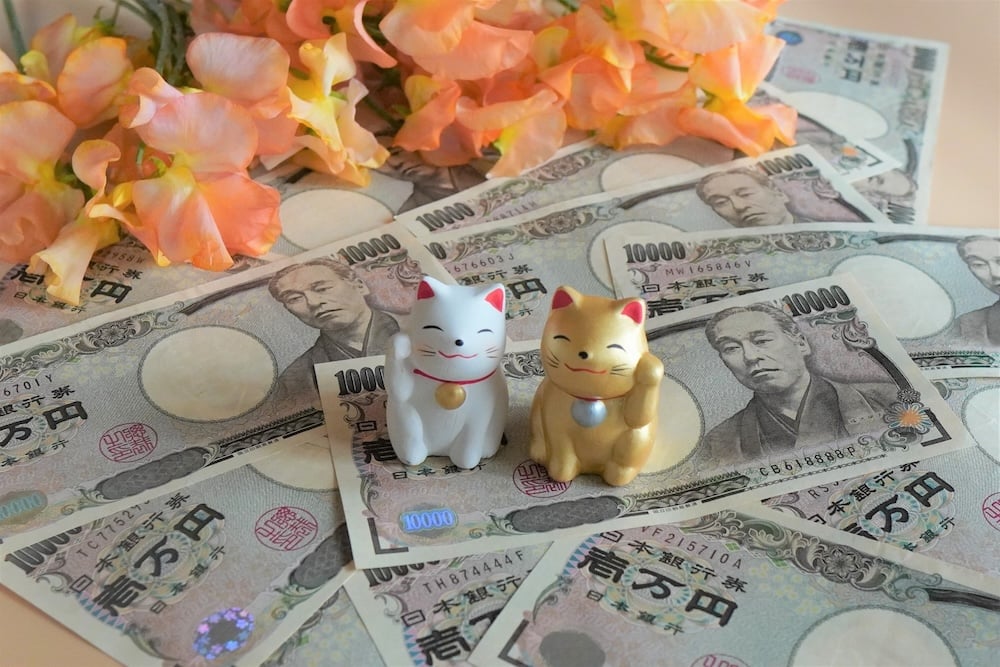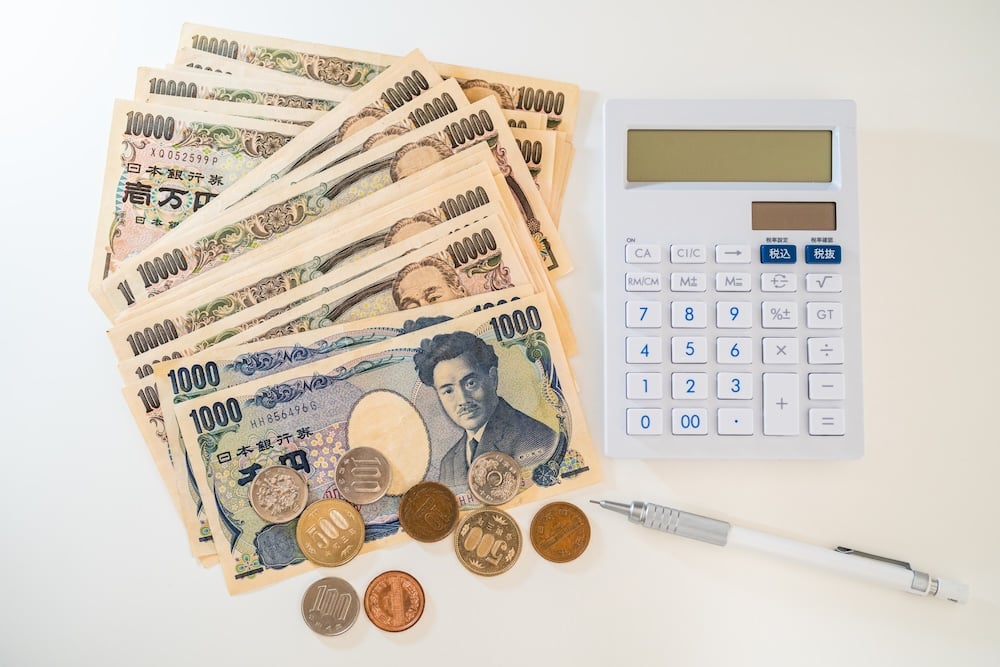
Over the past few months, the Japanese yen has continued to weaken at record levels. At one point, in late April, it briefly hit 160 per US dollar for the first time since 1990. This drop in value has been particularly favorable for visitors to Japan from other countries and in return, Japan has seen record numbers of international tourists coming to visit.
While this no doubt has some benefits for tourism related businesses and travellers alike, the weak yen has actually started to become a problem for people residing in Japan. Though the cost of living in Japan has remained very reasonable for a very long time, things are starting to change due to this slide in the yen’s value. In this article, we take a look at how the weak yen is affecting the cost of living in Japan as well as some tips for saving money on daily costs.

Why is the Yen currently so weak?
The simple answer to why the yen is so weak currently is to do with interest rates. Japan has traditionally held extremely low interest rates and as interest rates have increased in other countries, particularly in the US, the gap between it and the US dollar has widened. This is driving more investment in the US dollar and weakening the yen. The Bank of Japan recently increased its interest rates for the first time in 17 years, however it still remains one of the lowest in the world.
The weak yen actually has some benefits. Of course, there is the aforementioned benefit to international tourism. This drives visitors to the country and helps local businesses that rely on tourist spending. The other big winners from a weak yen are large Japanese corporations with global operations. A weaker yen means that their profits from overseas branches become much higher. Export companies based in Japan also gain increased profits from their businesses.
On the other hand, there are some big downsides to the weak yen and the ones who bear the brunt of it are people living in Japan. The weak yen drives up consumer prices and the cost of living increases and as a country that imports a lot of goods, Japan is particularly vulnerable to this.

The Wage Problem
It’s not uncommon to see travellers to Japan proclaiming on social media how cheap Japan is at the moment and from many tourist’s point of view, it’s true. Inflation has been very slow in Japan and as such, for a very long time, prices stayed largely the same. With the yen falling, prices have suddenly started to rise over the past few years and while still on the low end of things, this sudden cost of living increase has come as a shock to Japanese citizens. In fact, Japanese news sources reported price increases across a total of 32,395 products in 2023 alone, many of which hadn’t changed price in years. Aside from consumer goods, utilities have also been rising due to Japan being heavily reliant on things such as gas, coal and oil which are all imported from other countries. While things might still seem cheap from the outside, for residents, the increases are surprising.
The biggest issue with the falling yen and the cost of living prices is that wages in Japan generally haven’t increased at all and show no signs of going up anytime soon. Both Japanese citizens and foreign residents have started to feel a little uneasy about this. For foreign residents in particular, the exchange rate can mean increased payments on financial obligations in their home country such as student loans and increased international travel costs. This latter issue is also affecting Japanese travellers with many postponing overseas travel due to the yen’s weakness in other countries. Unfortunately, domestic travel is also becoming more difficult with increasing demand from inbound travellers driving up Japanese hotel prices.

Money Saving Tips
Things aren’t all bad though. If you’re a foreigner living in Japan, there are definitely plenty of ways to save money in Japan. Let’s look at a few ways of getting the most out of your yen in day to day life.
Cooking at Home: Limiting dining out and cooking at home is standard advice that applies in most countries. While dining out in Japan is enormously affordable in comparison to many places, it’s still mostly a cheaper option to cook at home. This is especially true if you learn how to cook Japanese food. Japanese food is all about seasonal ingredients so learning and sticking to what is in season can be very economical. If you don’t have time to cook, another great tip is that supermarkets often offer discounted bento later in the evening which makes this another great budget conscious way to get a good meal.
Point Cards: Japan has so many different point cards and you can get big savings by having a few of them and using them regularly. Some cards cover a lot of major stores such as Rakuten Point and Ponta cards. Others are more store based, such as different restaurant chains offering discounts and different supermarkets allowing you to build up points that you can use for purchases. The supermarket cards in particular are very good value and if you frequent the same supermarket you can earn points to use very quickly. Helpfully, a lot of point cards have mobile apps that allow you to sign up for them quickly and easily without having to first visit the store in person or carry around a physical card.
Second-hand Stores: If you’re in need of household goods, Japan has many second-hand stores including popular chains like Hard-off or 2nd Street as well as many independent stores. As well as being a great place to just browse for bargains you can often pick up things like furniture or appliances for very reasonable prices.
Share Houses: Rent in the countryside in Japan can still be very cheap but can be a lot harder on the wallet in major cities, particularly if you’re after something a little larger or close to a major station. One way to get around this is by looking at share houses. There are various websites that allow you to search for share houses currently looking for new tenants in Japan. As well as being cheaper, this can also be a great way of meeting new people and making friends.
The Future
A lot of the talk about the current economic conditions in Japan comes down to ways to stop the yen’s value from falling with talk of a government intervention. The big issue for many people in Japan though is getting a high enough wage to deal with rising living costs. Though some of Japan’s largest companies have started to increase wages across the board, this has not yet flowed down to small and medium companies.
With the weakened yen, ongoing price increases and wage stagnation, things can look a little bit bleak for residents at times. That said though, in terms of daily costs, Japan can still be a very affordable place to live and there are many ways to budget and make savings in order to ensure that you can still get by, even with the weakened yen.













